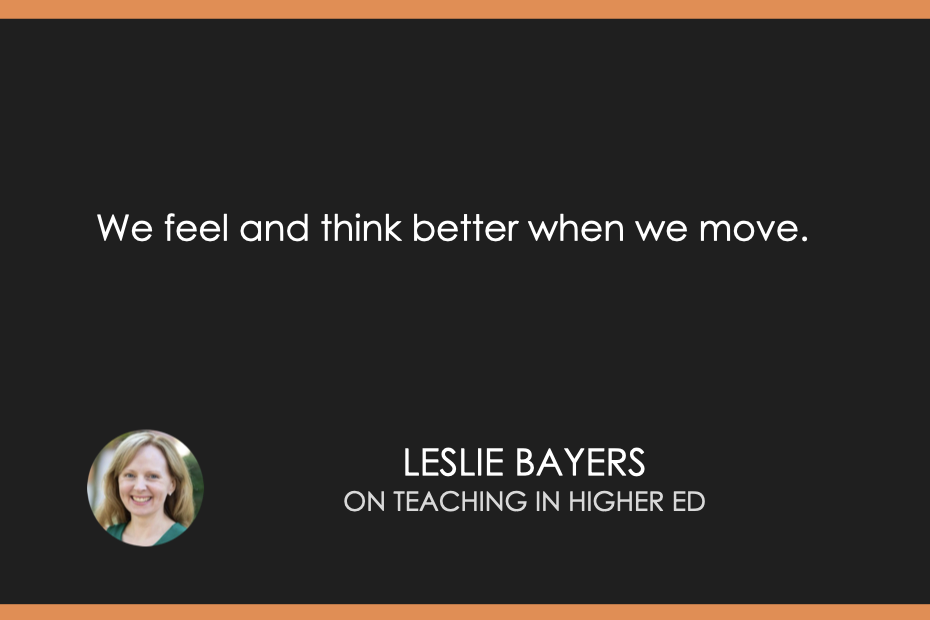
 Teaching in Higher Ed
Teaching in Higher Ed The Joy of Embodied Learning
7 snips
Jul 24, 2025 Leslie Bayers, Director of the Center for Teaching and Learning at the University of Pacific, champions equity in education and faculty support. She reveals the importance of body literacy in learning, arguing that we learn better when we move. Bayers shares insights on how our physical environment influences student engagement and the cognitive process. She encourages incorporating movement into teaching to enhance learning experiences and advocates for flexible classrooms that foster connection and engagement.
AI Snips
Chapters
Books
Transcript
Episode notes
Learning Shapes and Body Role
- Traditional classroom setups promote learning as a brain-only activity and discourage bodily engagement.
- This creates a sense of distance between students, teachers, and their own bodies, impacting creativity and connection.
Invite Movement to Spark Learning
- Offer options to support different energy levels and physical needs in the classroom.
- Invite students to move or engage with sensory textures to spark learning and disrupt sedentarism.
Embodied Cognition Explained
- Embodied cognition sees bodily sensations and movements as central to thinking, not separate.
- Movement and shared physical experiences can boost attention, memory, creativity, and empathy.







